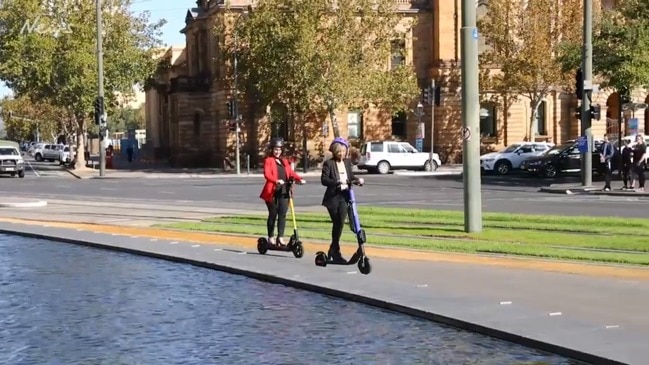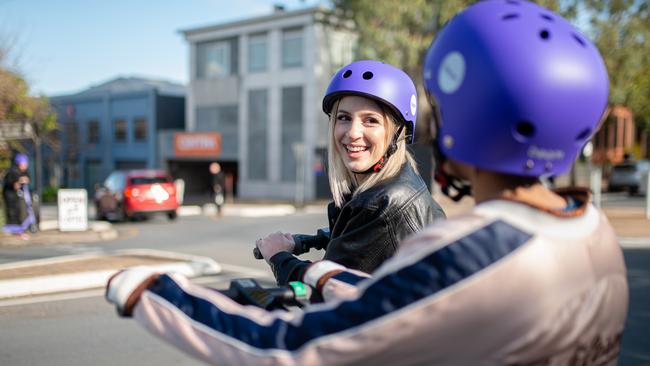Adelaide deputy mayor calls for Beam e-scooter investigation
There is a call for e-scooter operator Beam to be investigating in Adelaide after reports emerged of the company exceeding the cap on device deployments.

SA News
Don't miss out on the headlines from SA News. Followed categories will be added to My News.
An Adelaide council leader is calling for an investigation into e-scooter operator Beam Mobility amid reports the company allegedly manipulated monitoring technology to exceed caps on the vehicles.
The “phantom” e-scooter claims were first reported in The Weekend Australian, listing at least five local governments that were investigating the company for allegedly cheating them out of potentially hundreds of thousands of dollars.
The national broadsheet said the local governments – including Brisbane, Townsville and Canberra, and Auckland and Wellington in New Zealand – were probing claims Beam deliberately went over a set cap on the number of e-scooters able to operate in the respective cities.
Both Beam and Neuron operate in Adelaide, and have a maximum cap of 800 e-scooters each that can be deployed.
Deputy Mayor Keiran Snape has called for an investigation to determine if Beam – which is at the centre of the allegations – deployed more than its cap in Adelaide.
“I would certainly call for an investigation into this,” he said.
“And to ensure there is equity between the operators.”

Beam Mobility chief executive Alan Jiang, in a statement to the Weekend Australian, said the company was “deeply apologetic” for exceeding the allocations, but that it was unintentional.
Mr Jiang said Beam tracked its e-scooters via Ride Report – active for Adelaide City on its website – which monitors usage and status of the machines.
“Our intention was to ensure there were an adequate number of usable vehicles available to the public within the limits of the agreed terms with councils and Ride Report’s system, however as a result of this approach there have been instances where we have exceeded the vehicle allocation,” a statement from Mt Jiang, and published in full on the Weekend Australian, said.
“While this was never our intention, it is something that we take seriously and are deeply apologetic for.
“We understand the importance of our social licence in our key markets and recognise that we need to do better in the future to meet the high standards our partners set for us.
“We emphatically reject any suggestion that this was a ‘scheme’ to deprive councils of revenue.”
An Adelaide council spokesman said it was “not aware of allegations and not conducting any investigations”.
“Council is in regular contact with our e-scooter operators,” the spokesman said.
“We also receive reporting on e-scooters volume and usage in our council area, which forms part of their permit conditions.”

Ride Report shows more than three million e-scooter trips – or 4.38 million kilometres – in Adelaide from February 2020 to June 30, 2024, across two operators Beam and Neuron.
Beam started operating e-scooters in Adelaide in September 2020.
Both Beam and Neuron are capped at 800 e-scooters between October and April, with that revised down to 600 e-scooters each from May-September.
“While we set a cap, it is up to the operator to determine whether they deploy the maximum e-scooters the cap allows, or less,” a council spokesman said.
“As of 1 July 2024, Council altered our fee model to move from a flat free regardless of e-scooter numbers deployed on street, to a per device/per day rate.
“The fee model incentivises operators deploying only those that are needed on street, as they are paying per device per day.
“Operators are charged $0.50 per e-scooter per day up to a point set by Council, and then $1 per e-scooter per day up to the maximum cap limit.
“Enforcement action/penalties can occur if operators are found to be operating above this cap.”






